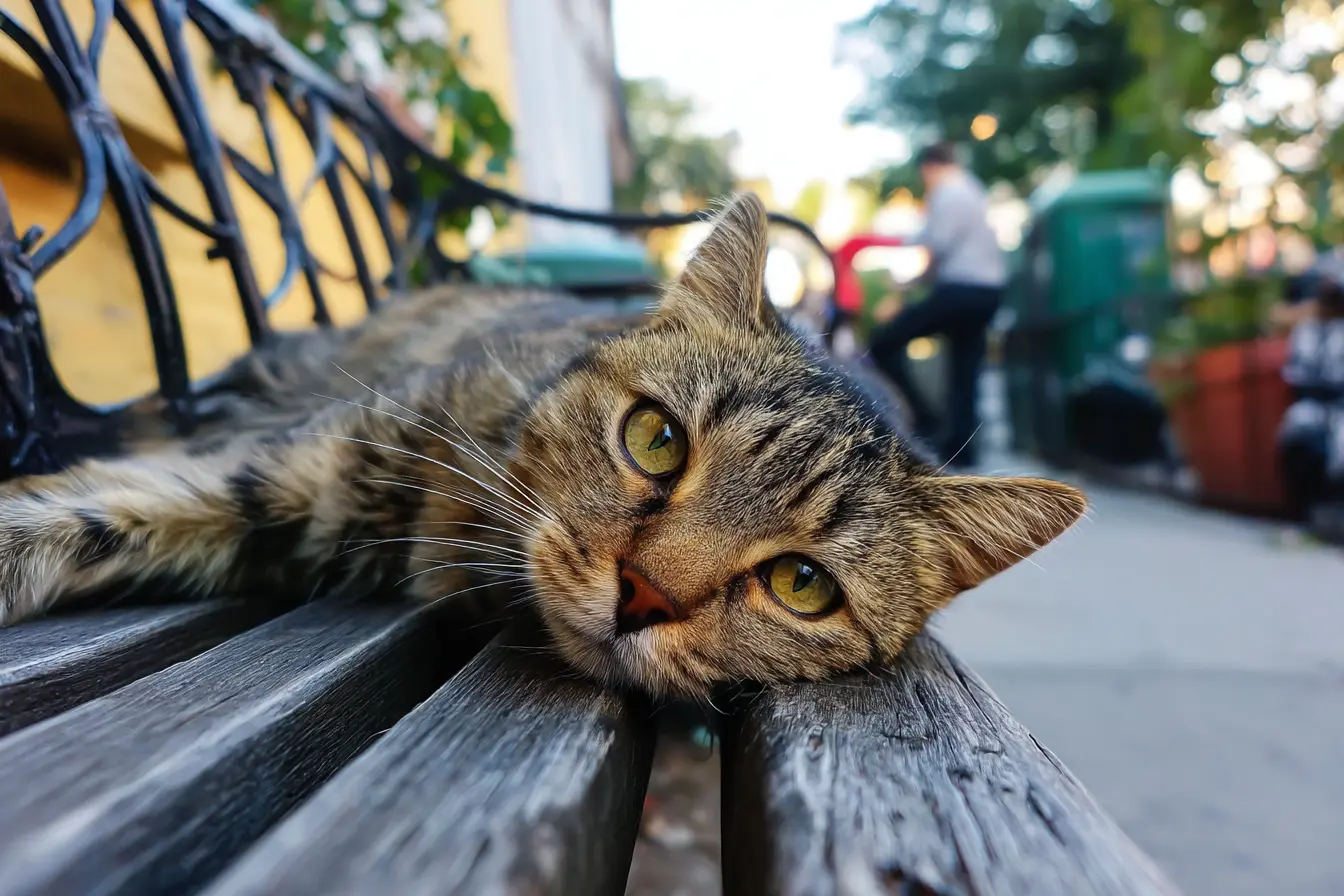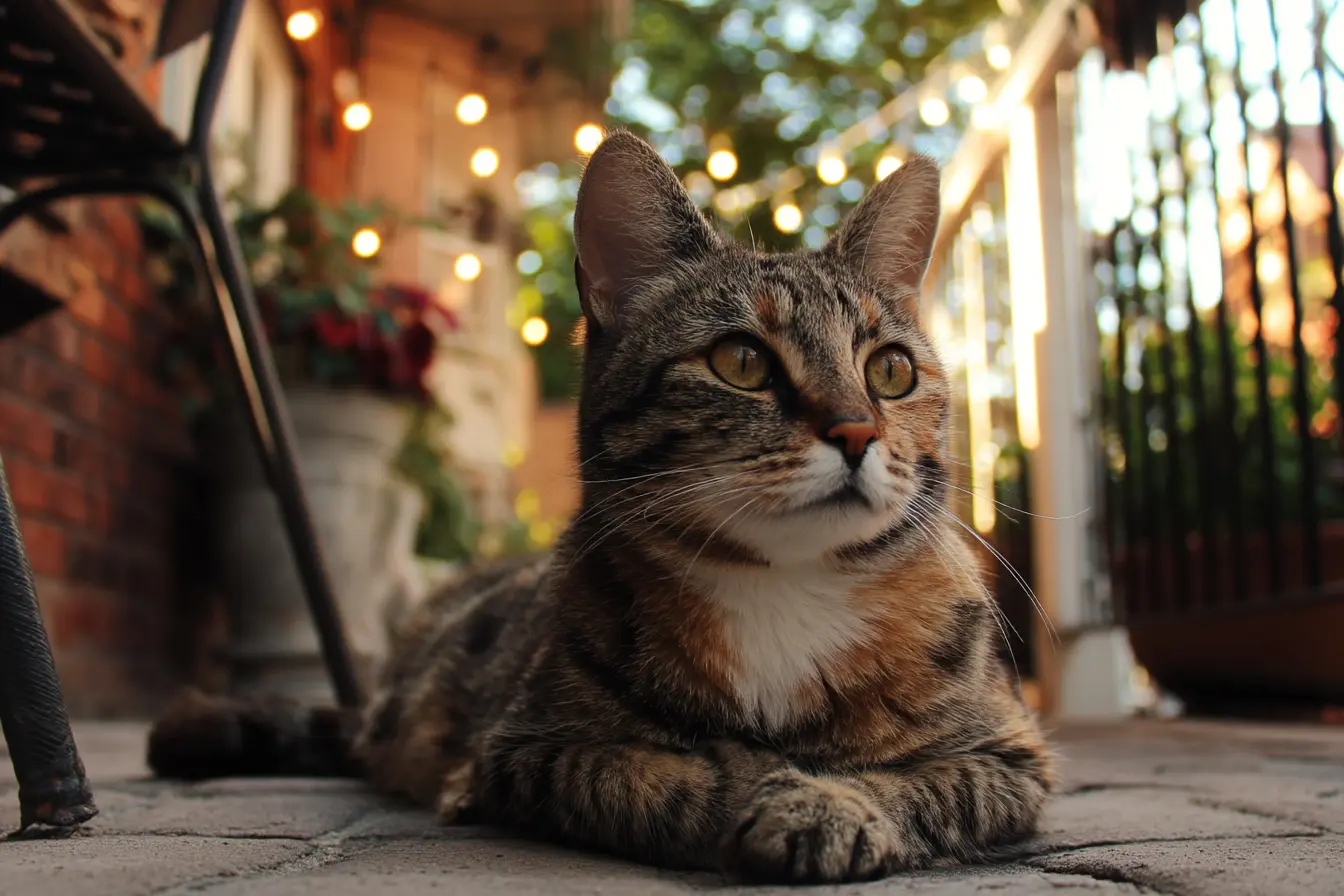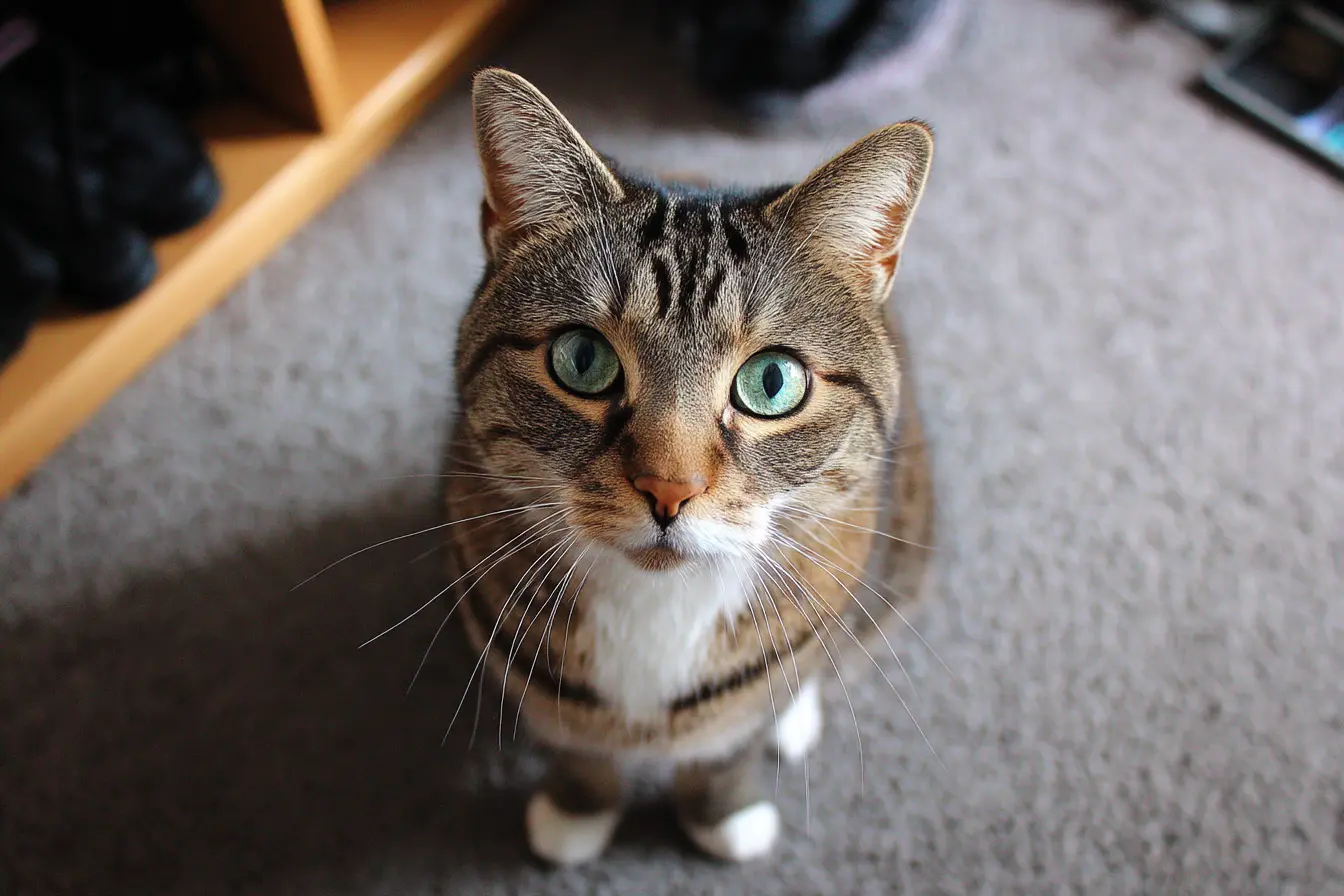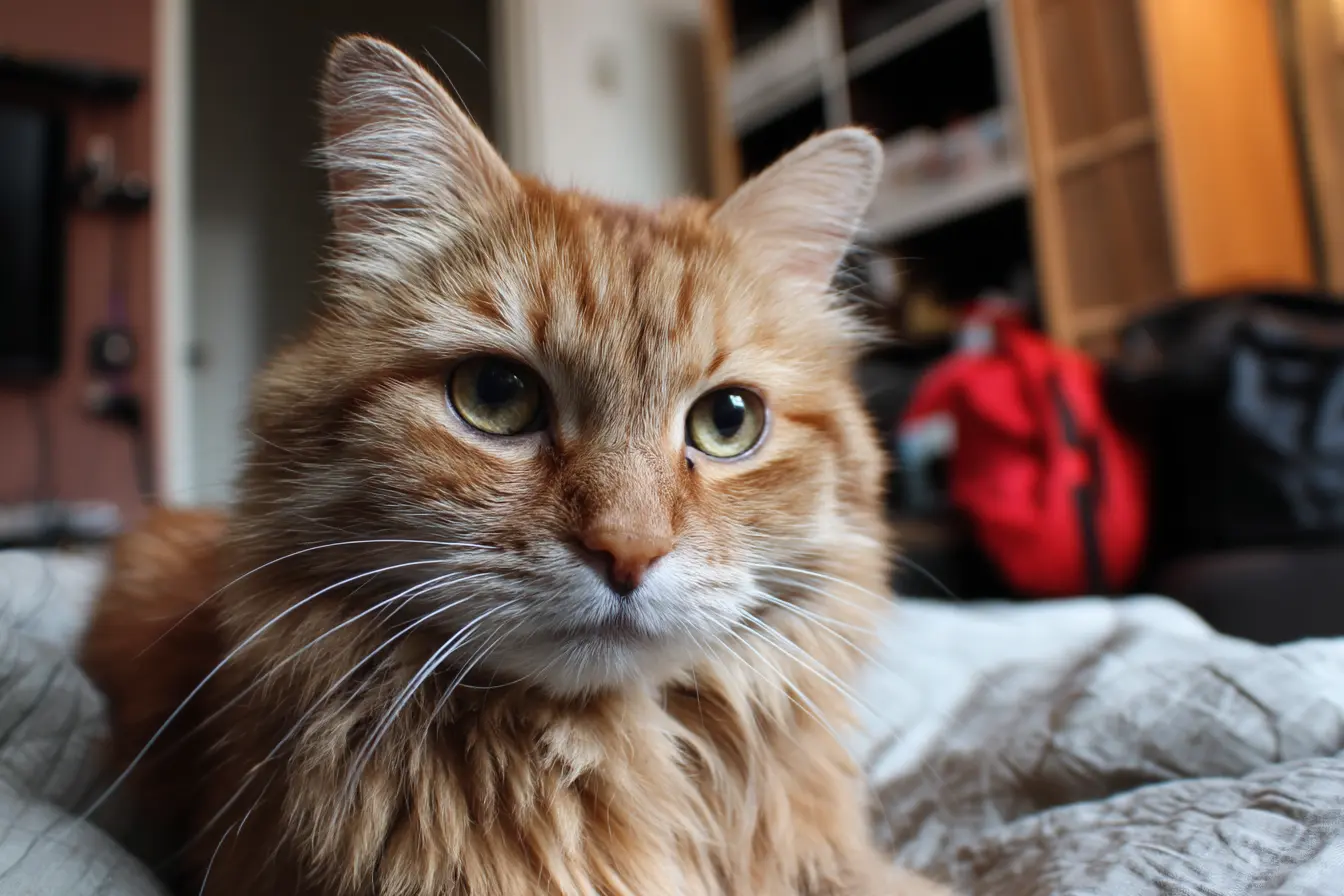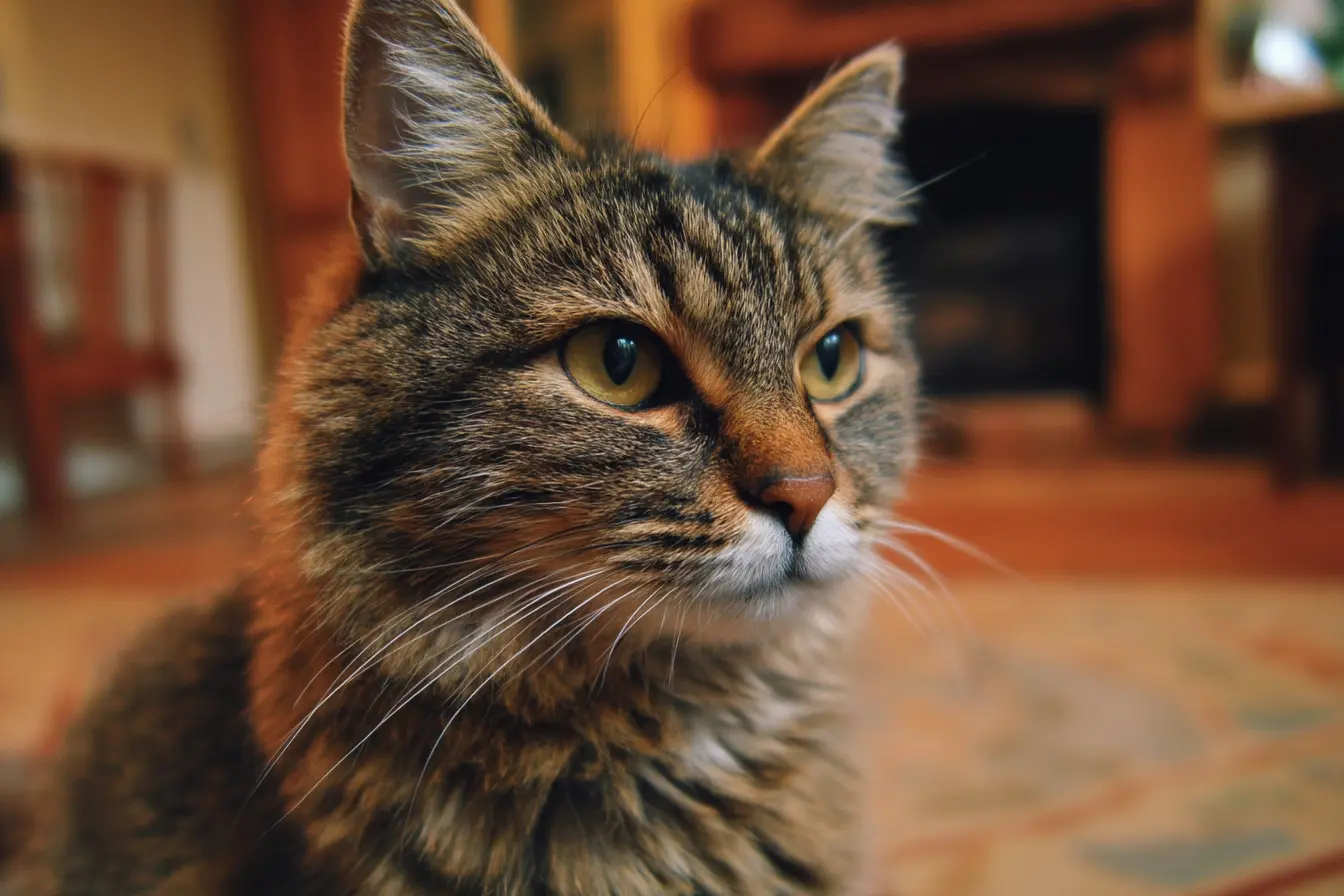
Heart Disease in Cats: Understanding Hypertrophic Cardiomyopathy (HCM)
Hypertrophic cardiomyopathy (HCM) is the most common form of heart disease in cats. It affects the heart muscle, leading to thickening of the left ventricle, which can impair normal heart function. This condition can be mild or severe, with some cats showing no symptoms until a sudden life-threatening event occurs.
While there is no cure for hypertrophic cardiomyopathy, early diagnosis and management can help improve a cat’s quality of life. This guide will cover everything you need to know about HCM, including its causes, symptoms, diagnosis, treatment, and prevention.
What is hypertrophic cardiomyopathy?
Hypertrophic cardiomyopathy is a disease of the heart muscle where the walls of the left ventricle become abnormally thickened. This thickening reduces the heart’s ability to pump blood efficiently, leading to complications such as heart failure, blood clots, and sudden death.
HCM is most commonly diagnosed in adult and senior cats, but it can develop at any age. Some cats may live their entire lives without symptoms, while others can experience severe cardiac events.
Causes of hypertrophic cardiomyopathy in cats
The exact cause of HCM is not always clear, but several factors can contribute to its development.
Genetic predisposition
HCM is believed to have a genetic component, and some breeds are more prone to developing the condition. It is especially common in Maine Coons, Ragdolls, British Shorthairs, and Sphynx cats. Genetic mutations linked to HCM have been identified in Maine Coons and Ragdolls.
Age and gender
HCM typically develops in middle-aged to older cats, but it can also occur in younger cats. Male cats are more commonly affected than females.
High blood pressure
Chronic high blood pressure, also known as hypertension, can contribute to heart disease by increasing strain on the heart muscle.
Hyperthyroidism
Overactive thyroid function can increase heart rate and blood pressure, leading to secondary heart disease. Treating hyperthyroidism can sometimes improve heart function.
Other underlying conditions
Certain systemic diseases, such as kidney disease, can lead to secondary changes in heart structure and function.
Symptoms of hypertrophic cardiomyopathy
Many cats with HCM show no symptoms until the disease is advanced or a sudden cardiac event occurs. This makes regular veterinary check-ups crucial for early detection.
Early symptoms
- Increased breathing rate or mild breathlessness
- Reduced activity levels or reluctance to exercise
- Mild weight loss
Moderate to severe symptoms
- Laboured breathing, particularly after activity
- Open-mouth breathing, which is a sign of respiratory distress
- Lethargy or sudden collapse
- Weakness or paralysis in the hind legs, often due to a blood clot
Sudden cardiac events
Some cats with HCM experience sudden heart failure or fatal blood clots, often with little warning. Aortic thromboembolism, also known as a saddle thrombus, is a condition where a blood clot blocks blood flow to the hind legs, causing sudden pain and paralysis.
Diagnosing hypertrophic cardiomyopathy
Since many cats do not show symptoms in the early stages, HCM is often diagnosed during routine veterinary exams when a heart murmur or irregular rhythm is detected.
Veterinary examination
- A vet may detect a heart murmur, arrhythmia, or abnormal heart sounds using a stethoscope.
- Not all cats with HCM have a heart murmur, so further tests are needed for a definitive diagnosis.
Diagnostic tests
- Echocardiogram (heart ultrasound): The most reliable test for diagnosing HCM, allowing vets to assess heart wall thickness and function.
- Electrocardiogram (ECG): Detects abnormal heart rhythms that may indicate heart disease.
- Chest X-rays: Identify fluid buildup in the lungs and signs of heart enlargement.
- Blood pressure measurement: Checks for hypertension, which can worsen heart disease.
- Blood tests: Assess kidney function, thyroid hormone levels, and other health markers that may affect heart function.
Treatment and management of hypertrophic cardiomyopathy
There is no cure for HCM, but treatment focuses on managing symptoms, reducing the risk of complications, and slowing disease progression.
Medications
Cats with HCM may be prescribed medications to help improve heart function and reduce strain on the heart.
- Beta-blockers (e.g., atenolol): Slow the heart rate and reduce oxygen demand.
- Calcium channel blockers (e.g., diltiazem): Help relax the heart muscle and improve blood flow.
- ACE inhibitors (e.g., benazepril): Reduce blood pressure and lower heart strain.
- Diuretics (e.g., furosemide): Remove excess fluid from the lungs in cases of heart failure.
- Anticoagulants (e.g., clopidogrel or aspirin): Reduce the risk of blood clot formation.
Lifestyle adjustments
Managing stress and ensuring a calm environment can help reduce heart strain. Cats with heart disease should avoid excessive exertion, but gentle play and activity are encouraged to maintain overall health.
Diet and nutrition
A balanced diet is essential for cats with HCM. Specialised heart-friendly diets with controlled sodium levels may be recommended to reduce fluid retention. Maintaining a healthy weight is also important, as obesity can put additional strain on the heart.
Complications of hypertrophic cardiomyopathy
HCM can lead to serious complications if left untreated.
Congestive heart failure
Severe HCM can cause fluid buildup in the lungs, leading to difficulty breathing. This is a medical emergency that requires immediate veterinary intervention.
Aortic thromboembolism (saddle thrombus)
Blood clots can form in the heart and travel to the aorta, blocking blood flow to the hind legs. Affected cats suddenly lose the ability to use their back legs and may experience severe pain. Emergency treatment is required, but the prognosis is often poor.
Sudden cardiac death
In some cases, cats with HCM may experience sudden death due to an arrhythmia or acute heart failure.
Can hypertrophic cardiomyopathy be prevented?
HCM cannot always be prevented, but some measures may help reduce the risk or slow progression.
- Regular veterinary check-ups, especially for at-risk breeds
- Screening for heart disease in breeding cats to prevent passing on genetic mutations
- Monitoring blood pressure and treating hypertension early
- Managing hyperthyroidism and other underlying conditions that can affect heart health
When to see a vet
Seek veterinary attention if your cat shows any of the following symptoms:
- Increased or laboured breathing
- Open-mouth breathing, especially when at rest
- Sudden lethargy or collapse
- Weakness or paralysis in the hind legs
Early intervention can help manage symptoms and improve a cat’s quality of life.
Conclusion
Hypertrophic cardiomyopathy is the most common form of heart disease in cats, affecting their heart function and overall well-being. While there is no cure, early diagnosis and appropriate treatment can help cats live longer, healthier lives.
Regular vet check-ups, early detection, and proper management of underlying health conditions are key to improving outcomes for cats with HCM. If you suspect your cat may have heart disease, consult a veterinarian for a thorough evaluation.
Contents
- What is hypertrophic cardiomyopathy?
- Causes of hypertrophic cardiomyopathy in cats
- Symptoms of hypertrophic cardiomyopathy
- Diagnosing hypertrophic cardiomyopathy
- Treatment and management of hypertrophic cardiomyopathy
- Complications of hypertrophic cardiomyopathy
- Can hypertrophic cardiomyopathy be prevented?
- When to see a vet
- Conclusion
Tags
Vets near you
Speciality vets
- Aquatics vet specialists
- Birds vet specialists
- Camelids vet specialists
- Cats vet specialists
- Cattle vet specialists
- Deer vet specialists
- Dogs vet specialists
- Equines vet specialists
- Exotic vet specialists
- Goats vet specialists
- Pigs vet specialists
- Poultry vet specialists
- Sheep vet specialists
- Small Mammals vet specialists
- Wild vet specialists
Vet facilities
- Accessible by public transport
- Blood testing
- Car park nearby
- Client car park
- Dentistry
- Diagnostic imaging
- Disabled public access
- Flea and worm treatments
- Microchipping
- Mobile services
- Neutering
- Open at weekends
- Out-of-hours service
- Referral interests
- Referrals only
- Street parking outside
- Toilets available
- Vaccinations
